Belgium: an investor's paradise With one of the most developed economies in all of Europe, Belgium occupies the eighth position in terms of national wealth (very close to the Netherlands, both geographically and economically). Belgium was the first country to be infected by the Industrial Revoluti ...
Ultra-high-net-worth individuals hunting for profitable investment opportunities
Ultra-high-net-worth individuals hunting for profitable investment opportunities
Attitudes and preferences of high-budgeted investors towards property investments
According to a survey published by Knight Frank and Citi, commercial property remains the most preferred type of investment for the wealthy besides their own business. They make their choice after having assessed risk, potential yields and capital growth.
The survey provides a deep analysis of the attitudes and preferences of high-budgeted investors towards property investments. New York and London remain the two most important investment spots for HNWIs and this situation is expected to remain unchanged over the next ten years.
Many Asian cities – such as Beijing and Shangai (China) and Kuala Lumpur (Malaysia) – are moving up the global rankings – while established centres such as Singapore, Hong Kong and Tokyo are losing their top positions – and are challenging Western cities’ dominance on the world luxury property markets. Geneva and Zurich (Switzerland), Washington and San Francisco (USA) are sliding down the rankings; on the contrary, Mumbai (India) – where the price of luxury homes amounts to 17,100 euros per sqm – Moscow (Russia) and Sao Paulo (Brazil) are seeing their importance grow rapidly.
The performance of prime market has been determined by local currency trends. The euro and the pound weakened in 2010 and British second home buyers could not contribute to the recovery of the real estate market of Italy, Spain and Portugal, where English investors have always been present. The weakness of the pound, on the other hand, encouraged the recovery of London real estate market.
The performance of the luxury property market is driven also by education and second homes; indeed, 23% of newly-built homes in central London were sold to overseas investors in 2010.
The value of real estate properties has fallen in cities such as Dublin (Ireland) and Dubai (United Arab Emirates), but also in Edinburgh (Scotland) – where sales volumes have been limited by the restructuring of the financial sector and the difficult access to credit – Abu Dhabi (UAE), Chicago (Illinois, USA) and Los Angeles (California, USA). Prices in New York and London, instead, have risen by 10%. High-level dwellings here cost between 22,600 and 56,300 dollars per sqm. The value of real estate properties is soaring also in Helsinki (Finland), Paris (France), Marrakech (Morocco), Manila (Philippines) and Munich (Germany) that remains the most expensive city, as luxury properties cost 46 thousand euros per square metre. Among the leading cities there are also Milan (Italy) and Rio de Janeiro (Brazil).
Global investors are also attracted by agricultural land due to the increasing need for food production estimated by the OECD. The acquisition of farmland is a key issue for countries such as China, India and South Korea, where the population is growing rapidly. HNWIs look for investment opportunities in areas that offer vast strips of land for sale/lease. Fertile soils can be found in Russia and Ukraine, but these countries present a high level of political and operational risk. Freehold acquisition is very difficult in Russia and impossible in Ukraine where land ownership is subject to a moratorium.
South America has an interesting farming potential thanks to its favourable climate and productive soils, but values have started to increase considerably in many areas. Land values rose also in Canada – that offers farmland for sale at emerging-economy prices – and Australia that attracts investors because it combines stability and developing nations prices.
Related Insights
-
Belgium: an investor's paradise
-
Did you say Brussels? Here is the complete guide that will make you pack your bags
Did you say Brussels? Here is the complete guide that will make you pack your bags Belgium is a very "silent" state. It is never mentioned, except in the political sphere, as a tourist destination or country where to make an investment. Yet, in this simple and useful guide, you will understand how ...
-
Road-racing lovers invest in Belgium
Belgium is the only country in the world where road bicycle racing is the most important national sport. Buying a home in Belgium is the best solution for road-racing-lovers who wish to reach the biggest road bicycle races – that include the Paris-Roubaix and the Liège-Bastogne-Liège – easily. ...
-
Ultra-high-net-worth individuals hunting for profitable investment opportunities
Ultra-high-net-worth individuals hunting for profitable investment opportunities Attitudes and preferences of high-budgeted investors towards property investments According to a survey published by Knight Frank and Citi, commercial property remains the most preferred type of investment fo ...
Real Estate Listings
For sale Farmhouse, Italy, Sassari, Palau, Località Multa D'Alascia - Capannaccia
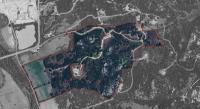
For sale
Farmhouse
120 m²
For sale Farmhouse, Italy, Rimini, MISANO ADRIATICO, Via san giovanni 53
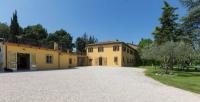
For sale
Farmhouse
380 m²
For sale 2 Bedrooms, Italy, Imperia, Sanremo, Via Padre Semeria, 208
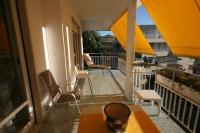
For sale
2 Bedrooms
67 m²
For sale House, Italy, Ancona, Cupramontana, via g. annibaldi
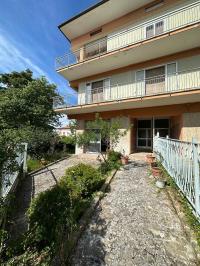
For sale
House
204 m²
For sale Farmhouse, Italy, Cuneo, Dogliani, borgata Pamparato 5
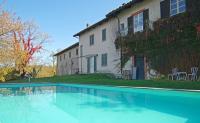
For sale
Farmhouse
1053 m²
For sale House, Italy, Carbonia Iglesias, Carbonia, Viale della libertà 36 Bacu Abis

For sale
House
73 m²
For sale 5+ Bedrooms, Italy, Venice, Teglio Veneto, Via Vittorio Veneto, 15

For sale
5+ Bedrooms
171 m²
For sale Villa, Italy, Olbia Tempio, Trinità d'Agultu, costa paradiso via la sarrera
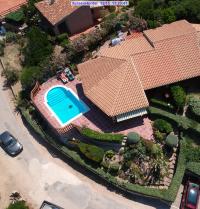
For sale
Villa
75 m²
For sale Villa, Italy, Ragusa, Ispica, c/da Santa Maria del Focallo
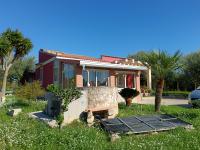
For sale
Villa
80 m²
For sale Farmhouse, Italy, Bergamo, Casazza, Via mologno
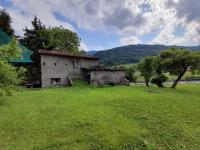
For sale
Farmhouse
200 m²
